
Dec 11, 2020 | Andrew Wong, Opinion
By Andrew Wong (V)
In 1991, with the end of the Cold War and the collapse of the Soviet Union, many American foreign policy scholars (most famously Harvard political scientist Francis Fukuyama) believed that the millennia of sociopolitical conflict between nation states that had defined human history were over, and that humanity had come to accept liberal democracy as the final form of government. Fukuyama argued in his book, The End of History and the Last Man, that from 1991 onward, history would be incredibly “boring,” as democracy spread around the world and human conflict would be reduced to little more than squabbles between democracies over trivial matters of trade and economics. Indeed, Fukuyama’s hypothesis held up for nearly a decade. According to Pew Research Center, democracies made up approximately 36% of nations in 1990. By the year 2000, 63% of nation states were democracies, and the number was only increasing as old authoritarian regimes crumbled and democracies came to replace them. Inter-state conflicts were, arguably, nowhere to be found. Indeed, with a new millennium upon us, it appeared that the era of great power conflict was over, and that freedom and liberal democracy would ultimately triumph over authoritarianism in every corner of the globe.
Fast forward two decades.
If there ever is to be an end of history as defined by Fukuyama, the events of the last twenty years prove it will not occur in the 21st century. The percentage of democracies around the world has shrunk from a high water mark of 64% in 2006 to around 50% today. Liberalism itself has struggled to adapt to the complexities of the times, especially during the COVID-19 pandemic, as we see democratic nations struggle between balancing freedom and their citizens’ health while authoritarian states tout their success in combating the pandemic by completely suppressing their citizens’ basic freedoms.
Along with exposing major flaws within liberalism, COVID-19 has accelerated the start of a power competition between a liberal United States and illiberal Communist China. If there was any hope left for detenté between these two nations prior to the pandemic, COVID-19 has completely killed that off. The symptoms of this new conflict are all here: the end of a free Hong Kong, the U.S. government’s attempts at banning TikTok and other Chinese social media apps, the Chinese government’s encroachment upon the sovereignty of various Indo-Pacific nations, the beginnings of a 5G and AI technology arms race; the list goes on and on.
The recent release of the State Department’s policy planning paper, The Elements of The China Challenge, not only serves as additional confirmation that a new reality of a great power competition is upon us, but it also provides a framework for how America’s foreign policy should be modeled in the years to come if we wish to defend the global liberal status quo against a belligerent Chinese government. To that end, it identifies several objectives the United States must accomplish, namely:
- The United States must be prepared to maintain freedom and democracy at home and abroad amidst the challenges of the Twenty-first Century.
- The United States must cooperate with its allies in order to preserve the free, open, and rules-based international system that has guaranteed freedom, peace, national sovereignty, and human rights since the end of World War II.
- The United States must educate American citizens about the scope of the China challenge, while also training a new generation of American students capable of not only understanding Chinese language and culture, but also the languages and cultures of other friends or adversaries.
The reality of this new global paradigm for us Gen Z-ers is a sobering one. The chapter of world peace created by the triumph of liberalism in 1991, which endured throughout our childhoods, has been shattered by the COVID-19 pandemic and left liberalism bruised and battered. I believe a new chapter of history is beginning as you read this very article, and it is not one of peace, but of great conflict between the United States and Communist China.
Our childhoods are over. I don’t think there will be peace in this world until one side wins in this new Cold War. Rather, I believe that as the pandemic subsides, we now live in the shadow of the US-China conflict, which will come to define the 21st century forever.
The Founding Fathers coined the phrase “United We Stand, Divided We Fall”, and I believe their words could not be truer today. If we continue down this path of great division, be it Democrat vs Republican, Rich vs Poor, Old vs Young, divisions that have already tested liberalism to its very brink amidst the chaos of the pandemic, our nation will fall as the great empires of antiquity did. I feel that we must, for our sake, for our children’s sake, find a way to mend these divides that continue to rot the very foundations of America each and every day. Only then can we firmly defend liberal democracy and finally condemn authoritarianism to the scrap heap of history where it deservedly belongs.
If government of the people is truly humanity’s destiny, I think that the events that occur in the years to come will either make or break that truth. Let us endeavor to ensure that this belief is correct.

Dec 11, 2020 | Opinion

By Carson Shilts (VI)
Growing up, I never wore dresses. I wouldn’t even wear shorts that went higher than my knees. I shopped in the boys’ section and stayed far away from anything that was remotely considered “girly.” Looking back, I realize now that I did this because I grew up seeing how men were given more opportunities and respect, and I, too, longed for that power.
It was easy to feel masculine at my all-girls school, where tom-girls were viewed the same way as boys, but when I came to Pingry, I had to change—a lot. I realized that no matter how much I would try to fit in and change myself, I would never be viewed as an equal. I could make the same jokes, and no one would laugh. I could get the same grades but be seen as less intelligent. I remember talking to my brother at the beginning of my freshman year, and I said, “I wish I could be funny, but people don’t think girls are funny.”
So I stopped talking for fear of being ridiculed, but that wasn’t much better. People assumed I had nothing to say, and soon I began to feel that they were right, as my voice was suffocated in a sea of chatter. I had a friend who was not afraid to speak her mind and use her voice, but she was labeled as bossy. It seemed that there was no right answer. I felt forced into my femininity, and I couldn’t escape it. I started to only spend time with people whom I knew wouldn’t judge me. I enjoyed the things I loved freely until I had to return to reality and hide my passions from everyone. Then, I would hide these things as if they were at risk of being stolen from me by someone who claimed that they “liked” it more. There is an ever-present competitiveness in men and women because when gender roles are assigned to things as simple as liking a particular movie, people flock to protect their femininity or masculinity. The whole idea of categorizing certain hobbies and interests by sex is incredibly restricting on both parties. Still, this constant need to prove ourselves is ingrained within us. It is so much more difficult to be respected by society when you do not fit the ideal form of the gender you were assigned at birth.
Over the years, this antipathy toward my femininity has slowly left. I have learned to reclaim it and make it something I can embrace. Femininity in general, I believe, is being re-evaluated as more and more people begin to define themselves as how they genuinely wish to be defined and perceived. The decision between what makes something or someone feminine and what doesn’t is being taken out of the hands of the late gender-designated world. It is becoming a decision, not an obligation. It is becoming something people don’t have to be ashamed of, but rather can take pride in.
Though there has been progress, the road ahead is long, and there are many other factors in this acceptance and liberation of sexuality that need a lot of attention and work. For example, women of color are held to a much higher standard than white women and are often overly fetishized and sexualized. There also lies a hypocrisy among gender-roles for black women as they are expected to be independent and strong, all the while delicate women are idealized. The disparities in how women are viewed versus their expectations from society are abundant. Gender-roles and sexism continue to dominate society and will do so until we first learn to fight for equality among all women.
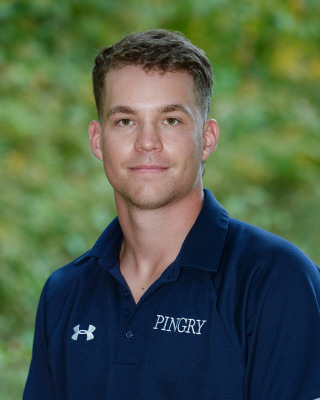
Dec 10, 2020 | New Faculty
By Anjola Olawoye (IV)
This fall, Pingry welcomed Mr. Sean Petrie, who joined the facilities team as a groundskeeper.
Before Pingry, Mr. Petrie worked at Prestige Plumbing and RW Smith Landscaping. He was also involved in ice hockey, playing in the United States Hockey League (USHL) for the Youngstown Phantoms. Mr. Petrie hopes to make a positive impact on Pingry this school year. Welcome to Pingry, Mr. Petrie!
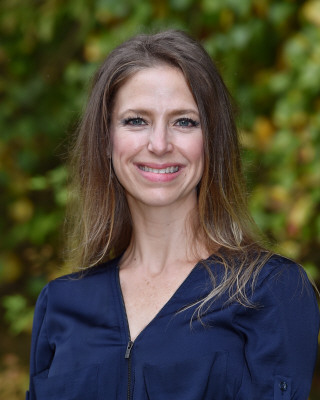
Dec 10, 2020 | New Faculty
By Allen Wu (V)
This year, Pingry welcomes Ms. Sky Monroe to the English Department. She will be teaching English 9 and 10 as a maternity leave replacement for Ms. Mahida till February. After Ms. Mahida comes back from her maternity leave, Ms. Monroe will stay at Pingry as a permanent humanities substitute.
Ms. Monroe attended Barnard College, where she earned her B.A., and later received her M.A. in Teaching English from the Columbia University Teachers College. Prior to joining Pingry, Ms. Monroe taught at the Fiorello H. LaGuardia High School, and later taught AP/Honors English to sophomores and juniors at Bernards High School for 14 years.
When asked about her motivations for becoming a teacher, Ms. Monroe explained that she started off as a yoga teacher as a side job while she worked on her theater career. Later on, she was inspired to become an English teacher when she realized she could combine two of her passions: teaching and literature.
So far, Ms. Monroe has enjoyed her time at Pingry. “In making a shift from a long term position that I have had, it was something that I thought about very deeply. However, I am extremely glad that I came to Pingry.” Ms. Monroe credits her love for Pingry to the welcoming atmosphere of the community. She also enjoys the time that she spends with her colleagues and students, and the intellectual diversity that can be found in Pingry’s classrooms. As we move further into the school year, Ms. Monroe hopes to contribute to the Pingry community as much as she can.
Outside of school, Ms. Monroe continues to participate in theater. Ms. Monroe also has two daughters whom she loves spending time with. In addition, she is passionate about health and enjoys teaching fitness.
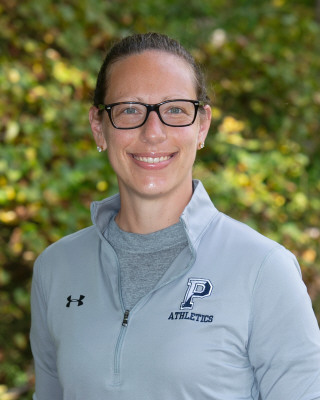
Dec 10, 2020 | New Faculty
By Allen Wu (V)
This year, Pingry welcomes Ms. Erin Boccher to the Operations Department. She will be primarily involved in the School as an operations officer and substitute teacher, but she will also serve as the Assistant Coach for the girls’ varsity basketball team.
Ms. Boccher attended Rutgers University, where she earned her undergraduate degree in exercise physiology. She then got a Masters of Science in athletic training from Seton Hall.
Before joining Pingry, Ms. Boccher taught at a few other independent schools in New Jersey. At Mount Saint Mary’s Academy, she worked as an athletic trainer and the Assistant Athletic Director. She then went on to work as the Athletic Director at the Academy of Saint Elizabeth.
When asked about her motivations for becoming a teacher, Ms. Boccher said that she specifically enjoys working at private independent schools. She especially likes being a part of the communities they create. “I love how the students get involved in so many different things from clubs to sports to the arts. I think there is something special about independent schools.”
So far, Ms. Boccher has had an enjoyable experience at Pingry. She explains that Pingry has been very supportive of her, which has been especially helpful with the ongoing pandemic. Ms. Boccher says that she hopes to continue to adapt to the changing circumstances, all the while learning from and helping the community in any way she can.
Outside of school, Ms. Boccher likes to exercise, by taking outdoor walks or going to the gym. She also enjoys cooking healthy meals in her free time.
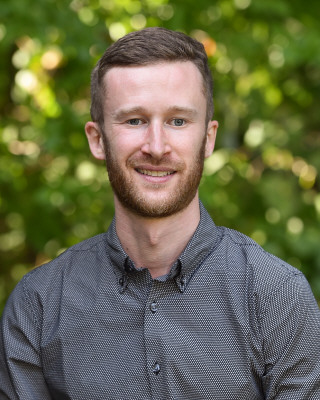
Dec 10, 2020 | New Faculty
By Keira Chen (III)
This year, Mr. Weber joins the Lower School faculty as a fifth grade Social Studies and homeroom teacher. He received an undergraduate degree in Business Management and Computer Information Systems from Colorado State University and went on to pursue his Master’s Degree in General Education for Grades 1-6 at the Bank Street College of Education. Before coming to Pingry, Mr. Weber worked in technology and as an associate teacher at several schools in New York. Mr. Weber said he’d always thought of teaching as “an interest of [his], but [he] hadn’t thought of it as a career.” Then, one summer, Mr. Weber volunteered at a farm in California, where he tutored kids at a nearby school. The experience made him realize the possibility of pursuing teaching as a career. Mr. Weber taught English in South America before landing a job in New York City.
Mr. Weber loves Pingry so far. He appreciates how he can always ask questions and how supportive the community is. His goal for the year is to make the most engaging and educational lessons for his students, whether that would be remote or in-person so that they can learn and have fun.
Mr. Weber is a self-proclaimed foodie, and he loves trying new restaurants. Besides that, he also enjoys traveling, reading, and meditation. For Mr. Weber, reflective time is crucial, and getting away from the busyness of every day can help.
Although he joined Pingry in a year of uncertainty, Mr. Weber is grateful to be able to teach relatively normally in the current situation. “I really appreciate the effort that Pingry has put into the COVID safety because I recognize how much happier I am being in school and being in-person,” he said. “I hope that we can be in school as much as possible for the rest of the school year as long as it’s safe.”
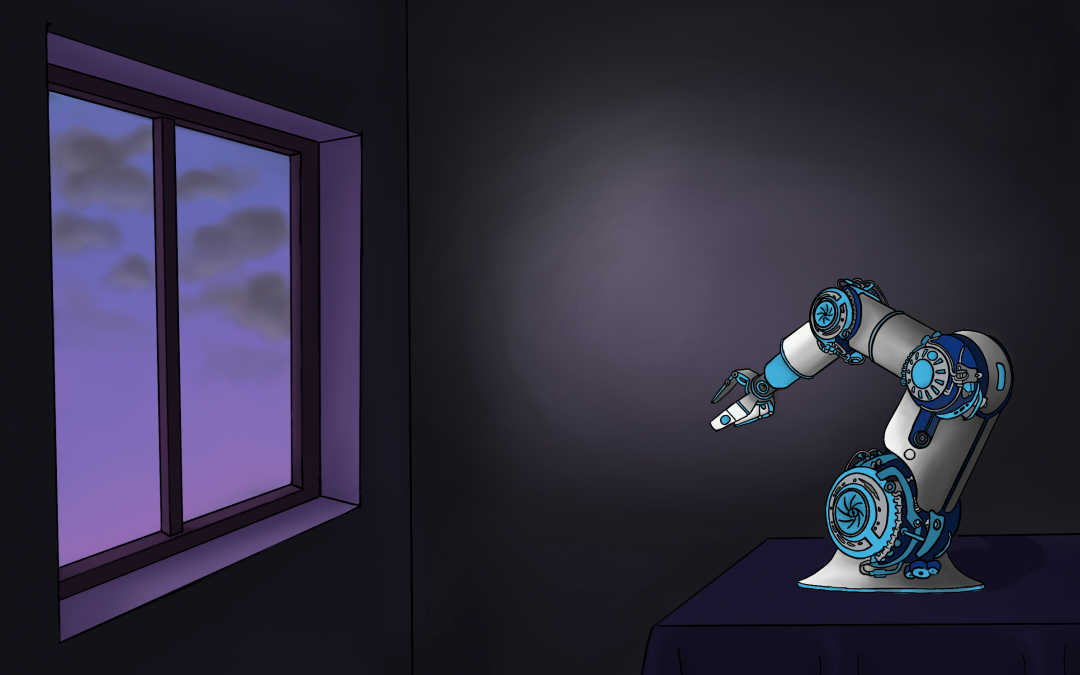
Dec 10, 2020 | Monica Chan, Opinion
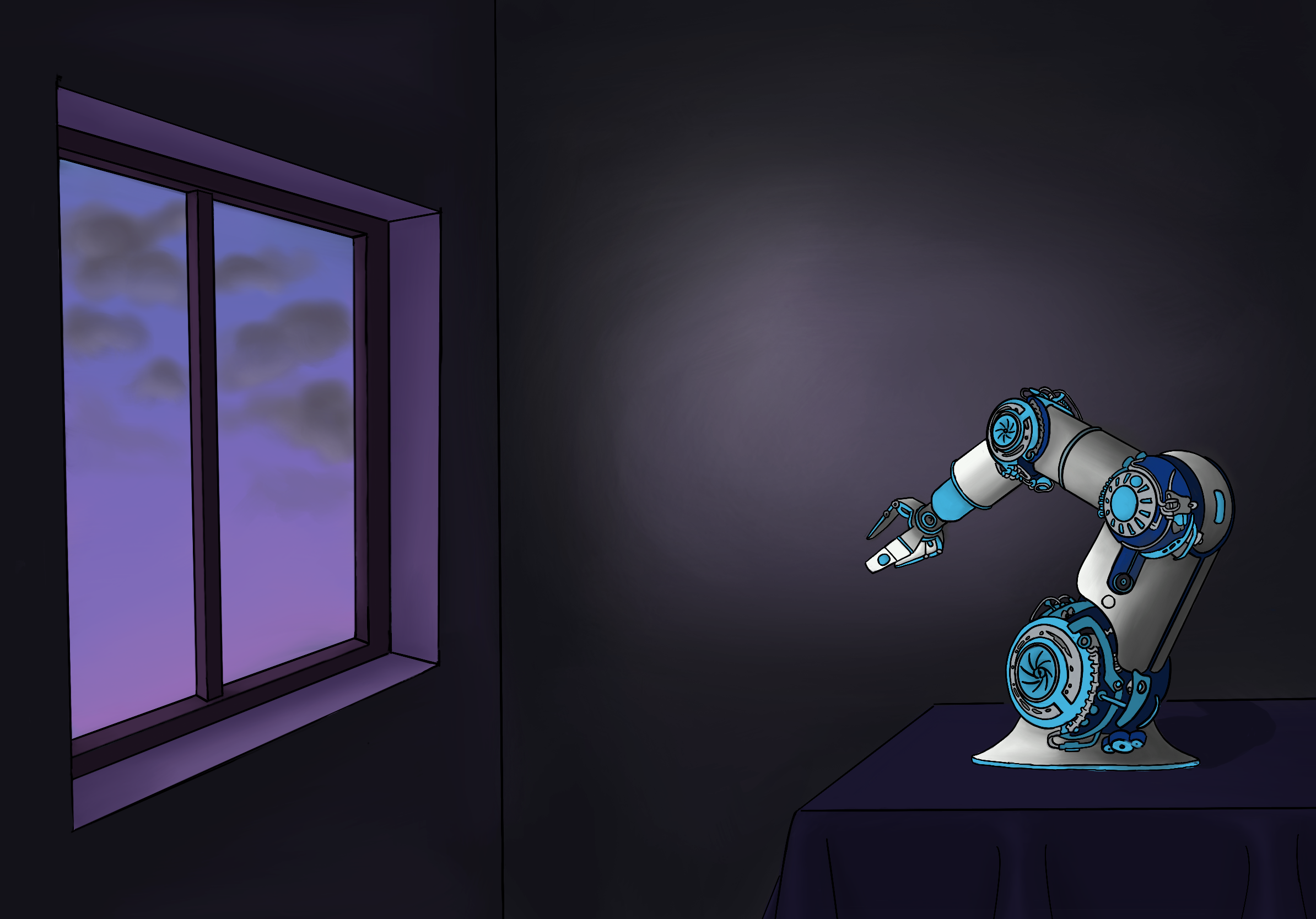
By Monica Chan (VI)
On Friday, the thirteenth of November, I had a free period first block. My mom told me to “drive safely, it’s Friday the thirteenth.” The night before, our robot had run into a few bugs, so I decided to use my free period to go into school and try some fixes. I was really groggy that morning, bitter about sacrificing the extra hour of sleep I could have gotten as I sipped my coffee driving to school. As I turned on the robot, I posted an annoyed selfie on my private Snapchat story, captioning it, “Why am I here?” I then put my phone down and proceeded to test my code. It was all still normal.
When the announcement was made that we were transitioning to fully remote learning, our robotics team worked in a frenzy. In a blur, we packed away the necessities, and I pulled my car around to the arts wing to load it up with everything we thought we might need in the next month. As I drove out of the familiar Pingry driveway, the sun was just setting, the sky a depressing shade of purplish grey. The time was 4:58, the first day that week I’d headed home before 5:30. It was during that drive home that it all settled inside my mind. I thought back to that picture I had posted on my private story, and a sense of regret swelled inside me. I thought to myself, “This morning may have been my last normal hour of robotics.” That’s when I realized the false sense of security that had brewed was suddenly gone. I felt the bottom of my stomach drop to the floor.
As a junior during the initial lockdown, I thought that at least the 2020-21 school year would be normal. I’d still have a chance to savor that last bit of high school life. I’d treasure it. I wouldn’t complain again about the long hours and the late nights. Yet, as school started, we all fell back into the pattern of complaining about our coursework, the face shields in AP Physics, and how Computer Science now took second lunch. We droned on the things we had all missed about being at Pingry. We hadn’t savored it, even though we had all said that we would. We became absorbed in ourselves again. Returning to school gave us a false sense of security about high school and our stay there. All too soon, the awe of our return wore off and we returned to our normal habits and dreaded class. My annoyed expression on my story exemplifies that idea. In retrospect, I regret posting it, and complaining about the extracurricular I had so sorely missed during the full lockdown.
Friday, November 13th, 2020. We all knew something unlucky was going to happen, but it wasn’t the fact that Pingry closed. It wasn’t the fact that our team was going to miss our robotics competition, or that Form VI would miss our in-service day the next Monday. It was the universe telling me I hadn’t kept my promise. It was showing the entire community how delicate our bubble really is, how fast it can all evaporate.
The robot sits near my workspace in the kitchen now, along with boxes of materials that we still have labeled from our trip to the 2019 World Championships in Detroit, a much simpler time in retrospect because we didn’t have to savor it as we had promised to do now. The robot is a physical reminder of the normalcy of school that I try to emulate at home, just like the rest of us are attempting to build our own Pingry bubble at home. Except there’s no laughter from my team, no frustrated sighs when the machines don’t work, no amusing confused expressions of the freshmen when code doesn’t work as expected. And that gap can’t be filled when we are remote. You can’t reform a bubble when it is popped; you can only blow a new one.
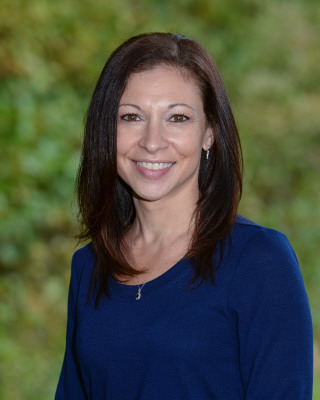
Dec 10, 2020 | New Faculty
By Kate Marine (III)
Ms. Lisa Longo Johnston joined the Pingry community this fall as a new member of the Upper School English Department. She is teaching English 9, as well as senior electives Ethical Dilemma and Shakespeare.
In addition to earning her bachelor’s degree from Lafayette College and her master’s from Rutgers University, Ms. Johnston has had almost 15 years of teaching experience in a wealth of different subjects, including History, Communication, and Political Science. Most recently, Ms. Johnston worked as the Assistant Dean of Arts, Humanities, and Social Sciences at Northampton Community College in Bethlehem, Pennsylvania.
Since coming to Pingry in the fall, Ms. Johnston has had a very positive experience with both the school and its community of students and faculty. From the autonomous academic spirit of students to the Honor Code, she has consistently admired the community’s “common commitment to the advancement of authentic, purposeful learning,” as well as the students’ “fearless embracement of course topics and willingness to think critically about the world around them.”
In her classes this year, Ms. Johnston aims to help her students “realize their potential in a way that promotes their long-term love of learning,” but with a renewed emphasis on joy and connection during these emotionally-trying circumstances. Ms. Johnston is incredibly grateful for such a warm and energetic welcome to The Pingry School, and she is looking forward to what her years here will bring.
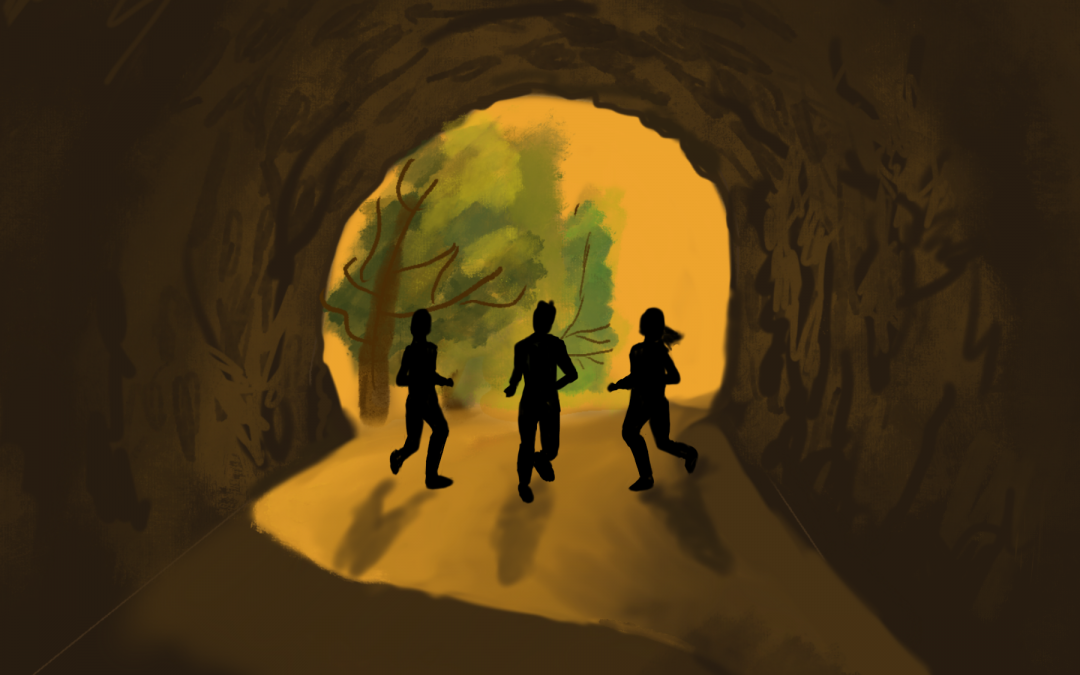
Dec 10, 2020 | COVID-19, Emma Drzala, Opinion
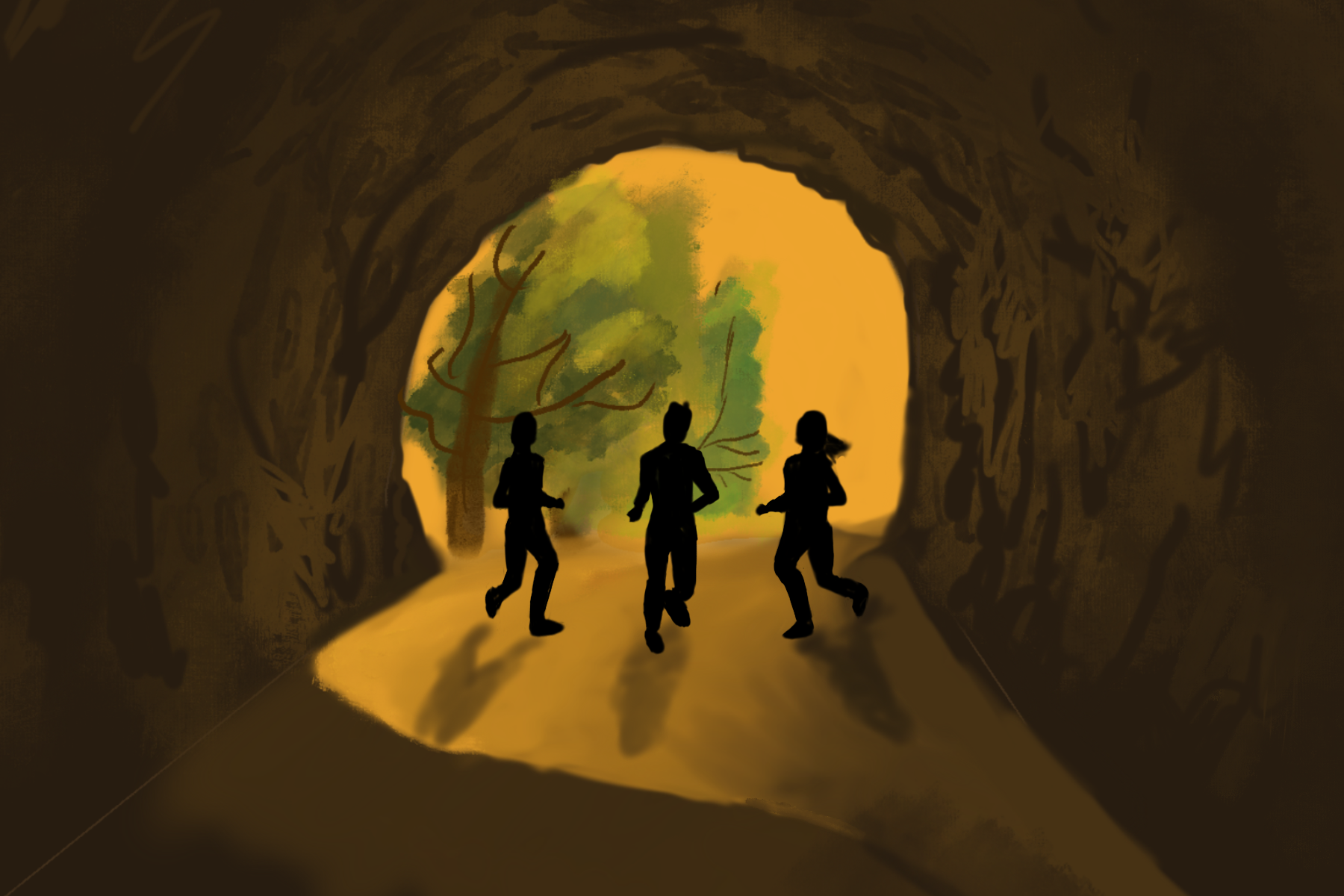
By Emma Drzala (V)
March 13, 2020: a day that will never be forgotten, not only at Pingry but across the nation. On that day, Pingry students were celebrating the news that school would shut down for a couple of weeks following spring break, as a result of the COVID-19 pandemic. Everyone was naïve to the situation around them; nobody could truly predict what was to come. We all thought we would be back in school by April or May, and that the shutdown was just a two-week extension to our break. We all gleefully walked out of school, not knowing that we would not return for half a year.
Two weeks turned into a month. A month became three months. School got out. Summer passed. Still, no end to the pandemic in sight. We came back to school with masks and shields. Still, no sign of the pandemic being over.
Just as we were prepared to give up all hope and accept the fact that the pandemic was our new normal, and that we would forever be confined behind our masks, shields and plexiglass prisons, Pfizer Pharmaceuticals announced a groundbreaking development on November 9th: they had finished developing a vaccine with a 95% effectiveness rate.
After the initial excitement surrounding this positive news died down, my mind bustled with questions. I wondered when the vaccine would be available to the general public, how many people would actually trust its reliability, but most importantly: would life finally, after so many agonizing months of quarantine, return back to normal? Would I finally be able to walk into school without scrambling to finish my pre-screening form? Could I finally eat lunch with my friends without being reprimanded for sitting less than six feet apart?
Although on first thought, the vaccine seemed to be the ultimate end-all for this virus, I realized that this was simply wishful thinking after months in quarantine and away from my friends.
We have to acknowledge that a vaccine may not live up to the hefty expectations the American public has placed on it. There is a high probability that mask-wearing and social distancing measures will still be enforced. During this pandemic, I have longed for a return to school in-person, and the empty and frankly depressing experience of online learning has only cemented this desire even more. The media and our politicians love espousing how the COVID vaccine will prove to be a silver bullet to the entire pandemic and ultimately, this mess of a year. But, let’s be pragmatic here. I do remain optimistic that this vaccine will bring back a degree of normalcy to our lives. Having a portion of the population, especially our most vulnerable citizens (seniors, frontline workers, doctors, etc.), will significantly mitigate the most serious risks of the disease. But with such limited distribution currently, this vaccine is no magic wand. If we take a look at the maladies of history that humanity has successfully defeated, such as polio, measles, and smallpox, nearly 80% of the population had to be vaccinated or develop immunity in order for these diseases to be vanquished. If we are to reach the said 80% of herd immunity, issues with storage and production, along with a sizable population of Americans unwilling to take the vaccine due to its experimental nature, will persist for weeks and months after the vaccine first comes out. These issues certainly hamstring our efforts, leaving a significant portion of the population vulnerable for quite some time.
So as pharmaceutical companies and the FDA begin the long-awaited distribution of vaccines, we must not fall into the trap of believing that we are entirely done with this horrible virus. Yes, there is a light at the end of the tunnel, and it is a miracle of science that American pharmaceutical firms have been able to develop the vaccine in such a short period of time. It is tantalizing to let down our guard at this juncture. But we cannot. We must be aware that until virtually every person in the United States has received the vaccine, COVID and the resulting regulations we have come to loathe this year will still linger. So let’s stick to these rules for just a couple more months and not let our guard waver. We have been forced to endure these rules for a year already, so several weeks will not hurt. We will be back together soon with our friends, under the sun, with no masks on and not socially distanced.
We are almost there. We just need to keep it together for this final sprint. Wear your masks. Spread out. Stay safe. There is finally a light at the end of the tunnel.
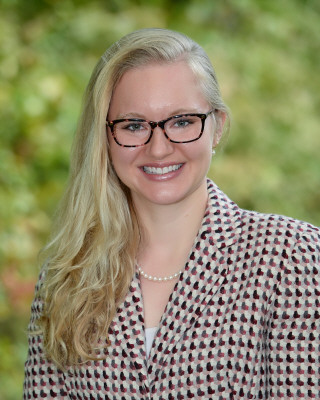
Dec 10, 2020 | New Faculty
By Andrew Wong (V)
This year, Pingry welcomes Ms. Bailey Farrell, who will be teaching Chemistry I and Chemistry II. Ms. Farrell received her B.S. degree in Chemistry from Stanford University and her Master’s in Teaching from Fordham University. She has also participated in Teach for America at a Bronx charter school for three years, and taught chemistry at the Ransom Everglades School in Miami. Most recently, she worked for the Educational Testing Service (ETS), where she helped develop the AP Chemistry exam.
When asked about what she looks forward to at Pingry, Ms. Farrell said she is excited about the opportunities for growth that the school provides. She explained, “In the few short months I’ve been here, I’ve already worked on new ways of teaching old concepts, incorporated new technology, and tended to bees with Ms. Tandon––it’s incredible. I love the feeling of getting to explore new things in my job, and Pingry makes that possible.” Ms. Farrell also remarked how the consistent level of dedication from both her colleagues and her students creates an energy at Pingry, and that, in turn, encourages her to try her best.
The Pingry community is extremely excited to have Ms. Farrell this year, and we’re excited to see what the future holds for her. Welcome to Pingry, Ms. Farrell!
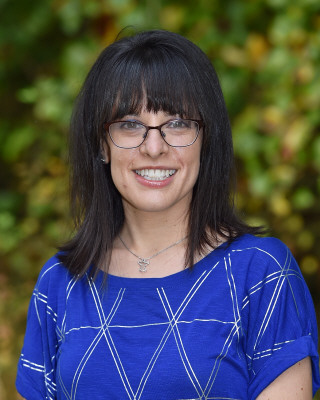
Dec 10, 2020 | Mirika Jambudi, New Faculty
By Zoe Wang (V)
Pingry welcomed Dr. Pamela Longo in January, 2020; as a result, she was able to settle into the community before online learning took place and has “ridden the wave of the COVID experience.” Dr. Longo has loved her time at Pingry and especially enjoys working with her students and fellow faculty members. She commented on how she appreciates “how welcoming everyone has been to me over the last several months, despite all of the uncertainty at home.”
Dr. Longo is a member of the Upper School English Department, where she is currently teaching English 10, American Literature, and Contemporary Short Story. In addition to teaching English, Dr. Longo is a co-advisor to the Christian Affinity Group.
Dr. Longo attended Drew University as an undergraduate, where she received a B.A. in English. She then continued her education at the University of Connecticut, where she obtained a M.A. and a Ph.D. in Medieval Studies. Before coming to Pingry, Dr. Longo taught English at the secondary and college level.
Coming from a family of teachers, Dr. Longo was inspired to follow their lead and start teaching herself; she saw the influence her mother had on students and wanted to have an impact as well.
Dr. Longo wishes to share her love of learning with her students and hopes that they gain an appreciation for the power of literature. She believes that “literature has value for us by grounding us and giving us a sense of our common humanity.”
In her free time, Dr. Longo loves to read anything she can get her hands on. She also continues to academically write and enjoys playing the piano.
Welcome to Pingry, Dr. Longo!
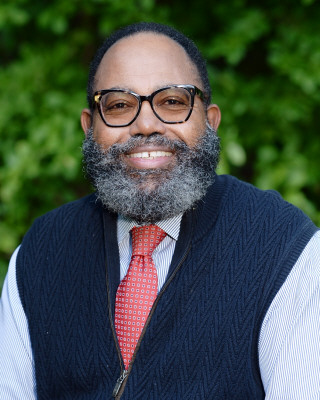
Dec 10, 2020 | New Faculty
By Sarah Kloss (V)
This fall, the Lower School Faculty welcomed Dr. James Watts as a K-3 music teacher. Dr. Watts received a B.S. in Education from Western Illinois University, an M.A. in Educational Administration from Kean University, and a Doctor of Arts in Educational Administration from Nova Southeastern University. Dr. Watts began his career as a music teacher before deciding to become a school administrator. He has worked as a school administrator both in the United States and the United Arab Emirates.
When asked what inspired him to become a music teacher, Dr. Watts responded that teaching has always been his passion, and he is happy to share his love of music with his students. When he learned about the position to become a music teacher at Pingry, Dr. Watts was excited to apply. He’s now thrilled to be a part of a vibrant educational community.
Dr. Watts has really enjoyed working with Pingry students and has planned many interesting activities to enhance music education for the Lower Schoolers. At Pingry, he hopes to model, encourage, and expose all students to the life-changing joys of music. In addition to teaching K-3 music, Dr. Watts will teach private piano lessons after school. Outside of the classroom, Dr. Watts loves to read, listen to music, play golf, and spend time with his family. Welcome Dr. Watts!
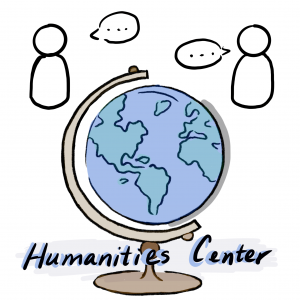
Dec 10, 2020 | Clubs, Emily Shen, School News

By Emily Shen (V)
It is that time of year again: the Humanities Center is now open! As the School continues to experiment with Pingry Anywhere, students are looking for the best ways to seek academic help outside of class. Although beneficial, it can be difficult and intimidating to sit down with a teacher over Zoom. For this reason, Sam Wexler (V) and Emily Shen (V) have decided to open the Humanities Center as a resource for Pingry students.
Wexler and Shen designed the Humanities Center around the realization that connecting with peers can be extremely beneficial to learning. Whether that be working on projects together, or last-minute cramming, hearing a friend’s way of thinking can help retain information a lot better.
In a year of instability, the leaders believe that academic support among peers is more important than ever. The Humanities Center aims to accomplish this by assisting students in their History or World Language classes. The tutors are a group of qualified students who have taken a specific history or language class within the last year, and have a thorough understanding of the material from that class. Through the Humanities Center, they will utilize their knowledge to help each student in a timely manner. Whether the student has a simple question, or needs more extensive help reviewing the class materials for an upcoming assignment, the tutors will be able to provide the appropriate help. Given the protocol for club meetings this year, all help will be carried out remotely; the designated tutor will connect with the student via email or set up a Zoom meeting to ensure that the student’s questions get fully answered.
The Humanities Center is a safe space for all students to receive the help they need in their History and World Language classes. We encourage students to make use of the Humanities Center as an additional resource to the academic support provided at Pingry. If you would like to learn more about where you can access the Humanities Center, feel free to click on the announcement on Pingry Today, where you can find a request form. If you are interested in joining us or have any other questions, feel free to email eshen2022@pingry.org or swexler2022@pingry.org for more information!
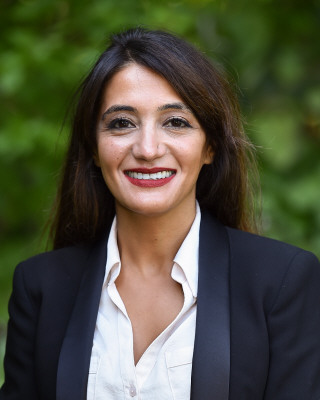
Dec 10, 2020 | New Faculty
By Sarah Kloss (V)
This school year, Ms. Mojda Walker joins the Lower School as a fourth grade Social Studies teacher. She earned a B.A. in Child Psychology from Alfred University and a M.S. in Education from Pace University. Ms. Walker loved working with children early on, and always knew that she wanted to be a teacher. Once she started her Teaching Fellow Program in New York City, she “knew [that she] was on the right path.”
Ms. Walker started teaching fifteen years ago, and has taught in both the United States and internationally. She first taught at P.S. 138 in Brooklyn, later moving to the UAE to teach sixth grade English and Social Studies. She then moved to Switzerland and taught fourth grade at the Zurich International School, before returning to the United States to teach at the United Nations International School. Later, she took time off to train as an occupational therapist, but soon missed the classroom and moved to Qatar to teach fifth grade girls. Upon getting married, she returned to the States yet again as a Teaching Assistant at Saddle River Day School. When a position teaching fourth grade opened at Pingry, she was very excited to take on the opportunity.
Ms. Walker loves Pingry because of the students’ work ethic. Her goal for this year is to create a curriculum that can enrich both remote and in-class students. She loves being part of the Pingry community and hopes that she can incorporate her international experiences into her teaching. In her free time, Ms. Walker loves to exercise, listen to Audible, and spend time with her family. Welcome to Pingry, Ms. Walker!
Dec 10, 2020 | Clubs, School News
By Evan Wen (IV)
This year, the Competitive Programming Club was formed to introduce Pingry computer science students to competitive programming. In competitive programming, participants are given problems that they must solve by writing programs.
The club primarily focuses on preparing students for the USA Computing Olympiad (USACO) and contests on Codeforces, a website that hosts online programming competitions. Both of these competitions are online, which means they’re guaranteed to run, regardless of closures to due coronavirus, and are a great way to pass time while at home.
Several students are preparing for the USACO, which has four divisions: bronze, silver, gold, and platinum. An upcoming contest on the weekend of December 18-21 is an opportunity for competitors to get promoted to higher divisions. In November, Alan Zhong (III), Nick Meng (III), and Hansen Zhang (III) competed in the online Montgomery Blair Informatics Tournament. In the future, there will be more team competitions as well as in-person competitions, once it is safe to gather in large groups.
Participating in competitive programming has many benefits, including preparing for interviews for programming jobs. Companies such as Facebook, Apple, Netflix, and Google all interview candidates by giving them tasks similar to those featured in programming contests. By learning from these programming competitions, participants are essentially also getting ready for job interviews at top tech companies.
If you are interested in programming or solving puzzles, let club leaders Chris Gu (V) and myself (Evan Wen) know via email. Currently, we are in the process of organizing a mock programming contest that will take place after winter break. If you aren’t sure whether competitive programming is for you, I suggest giving this mock competition a try. In addition, the Competitive Programming Club currently meets once a week to go work through problems that are selected from past USACO contests. Members may also choose to practice on their own by doing contests on Codeforces, solving past problems online, and reading online resources to learn more about certain techniques. Despite the challenges of the pandemic, the Competitive Programming Club looks forward to a year filled with strong results!

















